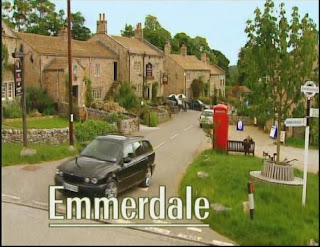 There’s a fairly interesting article-cum-review on the New Yorker magazine’s website this week, about the history and nature of creative writing courses in US academic institutions.
There’s a fairly interesting article-cum-review on the New Yorker magazine’s website this week, about the history and nature of creative writing courses in US academic institutions.
The article’s essentially a review of a book on the subject, but it’s opened and closed by some interesting history of the growth of such courses, and of course a fair amount of discussion of the time-honoured question in relation to creative writing, and indeed one might say writing in almost all its forms: can it be taught?
My personal feelings in relation to this are mixed, and you’ll be unsurprised to learn that this is very much a result of my personal history; my grandfather was a very good storyteller, and my parents encouraged me to read from an early age, and so it was that at about the age of 13 or so I found my brain bent out of shape by reading the work of Alan Moore, Harlan Ellison and Dennis Potter, and the growing realisation that you could do pretty much anything with words.
Just by arranging words in a certain order on the page, or saying them aloud, you could elicit reactions, hold people’s attention and convey information and more, and this still appeals to me to this very day. It’s pretty common for people to say that school wasn’t very supportive of what later becomes their passion, but I have to say that my secondary school, whilst sorely lacking in many regards, was never actively un-supportive of me wanting to do creative writing; there were two English teachers who helped me to do the creative writing option which was available to do as an adjunct to the English Literature A-Level, though with the 20-20 vision of hindsight it’s clear to me that I should have strayed out of my comfort zone a bit and taken English Language as a subject instead of Literature, even if that meant doing the class at the ‘rival’ school down the road.
So I started to write things, mainly for my own amusement at first, and then I started submitting scripts to comics (a bit of the reason for that is given in this post), and I guess that was when I started trying to think about writing in a slightly more technical way, as I guess might be taught in classes and courses.
Much of my approach to writing remains kind of instinctive and gut-level, stemming from basic ‘what if..?’ ideas, but the actual practice of it is a bit more technical now, with conscious decisions about character development, actions being consistent with characters’ personalities, and stuff like that. But as these are usually the fancy icing on the instinctive cake, I suppose I have some kind of uncertainty about whether creative writing courses will focus on the creation or delivery of story, which I tend to see as two different (and at times potentially opposing) things.
That said, I think it’s entirely possible to sharpen the saw, as it were, and there are many very good books written by popular and successful writers about the business of writing (as well as books written by people who’ve arguably been less successful as writers, but some of them are very astute on the technicalities of what works and the like, so they shouldn’t necessarily be dismissed too speedily). I’ve read a few of the good ones, and a couple of the bad ones, and in a strange way the latter are still kind of useful in an way, as they make you feel a bit more certain about your approach to things, even if it’s only because as you read and disagree with the text you’re forced to articulate to yourself just why you don’t agree.
As the New Yorker article alludes to, a ‘workshop’ environment is often used in Creative Writing Courses, and I have to say it’s not something I’d feel necessarily comfortable with; people can take courses for a lot of reasons, and have very different beliefs about what a specific assignment is, or should be, trying to achieve, and so you can end up with a document not written by, but instead critiqued by, committee, which is … well, not necessarily an entirely productive position to be in. And it’s a fairly stark contrast to the TV Writers’ Room environment, which many writers (myself included) would like to see increase in the UK, even if it’s very much a production- and economically-derived situation, for the simple reason that it’s a room full of people who are meant to be pulling in the same direction (oh, and the more important reason that it would make writing a less solitary activity).
I have my doubts about the environment, then, and as I don’t know exactly what’s taught on these courses, I’m rather vague on the content too; the article suggests there’s quite a lot of introspective work, perhaps even adherence to the maxim ‘write what you know’, and having written enough ropey self-absorbed poetry as a teenager (by which I mean a handful of poems, but believe me, that was more than enough), I’m not sure if that’s the way to go. But that’s probably my ignorance of what’s involved manifesting as suspicion.
So, I’d be interested to hear of your experiences of creative writing courses, and assessment of whether, ultimately, they were a good thing for you, and were well-run by people who knew a lot about the nature of storytelling and the like. I’m unsure whether I think they’re best for nurturing a nugget of innate writing tendency or not, really (not that it has any material impact on things; I’m not currently proposing to quit work and take a writing course), so input from people with proper experience and knowledge here would be welcome.
In relation to the sprawling narrative above, I was thinking about my one and only experience of attending a writing group. It happened when I was on the dole for a while, and a friend suggested I come along to the writers’ group arranged by her partner; I did so, and the way it panned out amused me at the time, though I suspect it’d now turn out quite differently.
After a number of people had read out their pieces, many of which were about emotional traumas or relationship upsets or staring out a train window and wondering what life was all about, I read out my offering, a short tale of a man coming across a book which detailed the events of his life, including events yet to come. It was a slightly fantasy-based piece (and might even qualify as ‘magic realism’, though that’s not a term I have much certainty about), and as such it was greeted initially with a slightly awkward silence, and then with some guarded and uncertain but polite comments, leaving me feeling that I’d rather misjudged my offering (and this muted response may well be why I didn’t go to any of the group’s meetings ever again).
Imagining this taking place in the very-different present, though, and given the way that fantasy and science fiction are seen as mainstream if not quite cutting-edge in terms of fiction, I suspect that the person who’d be stared at blankly in such a group today would be the one who read out the emo-style poem about their depth and sensitivity, and the way that the world just doesn’t understand them.
Mind you, being treated as the pariah would be good fuel for that day’s journal entry. Or perhaps even another poem.






